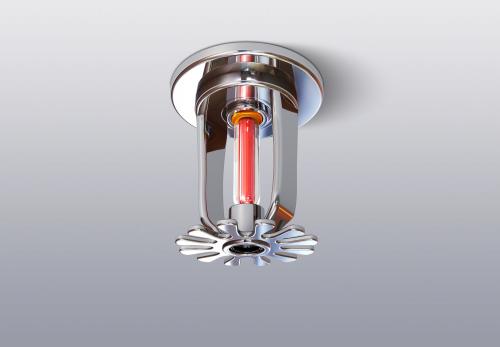Save Water, Save Money: The Benefits of Smart Sprinkler Systems

Water conservation is a
pressing concern in today's world. With increasing water scarcity and rising
water bills, it's more important than ever to find ways to minimize water
waste. Smart sprinkler systems offer an innovative solution to this challenge by
utilizing advanced technology to optimize watering practices. In this article,
we will explore the benefits of smart lawn sprinkler systems and how they can help
you save water and money.
1.
Automated watering schedules: Smart sprinkler systems come
equipped with weather sensors that collect real-time data on temperature,
humidity, and rainfall. This information is used to automatically adjust the
watering schedule based on the specific needs of your landscape. By irrigating
only when necessary and avoiding unnecessary watering during rainy periods,
smart systems ensure that you are not wasting water and prevent overwatering.
2.
Water-saving features: Smart sprinkler systems offer a range of
water-saving features that contribute to efficient irrigation. Some systems use
soil moisture sensors to measure the moisture levels in the soil and deliver
water only when the plants need it. This prevents overwatering and helps plants
develop deep and healthy root systems. Additionally, many smart systems have
rain sensors that detect rainfall and suspend watering temporarily, saving
water during wet weather conditions.
3.
Customized irrigation zones: Smart sprinkler systems allow you
to divide your landscape into customized irrigation zones based on the specific
watering needs of different areas. For example, zones with sun-loving plants
may require more frequent watering than shaded areas. By tailoring the
irrigation schedule to each zone, smart systems ensure that water is
distributed efficiently and no area is over or under-watered.
4.
Remote control and monitoring: One of the key advantages of
smart sprinkler systems is the ability to control and monitor your irrigation
system remotely. Most systems come with smartphone apps or web interfaces that
allow you to adjust the watering schedule, monitor water usage, and receive
notifications about system performance. This remote control feature enables you
to make real-time adjustments to your irrigation settings from anywhere,
ensuring that your landscape receives the right amount of water at the right
time.
5.
Water usage insights: Smart sprinkler systems provide valuable
insights into your water usage patterns. They track and analyze your water
consumption, giving you detailed reports and data on how much water is being
used for irrigation. This information helps you identify areas where water may
be wasted and allows you to make informed decisions about optimizing your
watering practices.
6.
Water and cost savings: By utilizing the water-saving features
and customized scheduling capabilities of smart sprinkler systems, you can
significantly reduce your water consumption. This translates into tangible cost
savings on your water bills. While the initial investment in a smart sprinkler
system may be higher compared to traditional systems, the long-term savings in
water costs can offset the upfront expenses.
7.
Environmental benefits: Implementing a smart sprinkler system
not only saves water and money but also has positive environmental impacts. By
reducing water waste, you contribute to conserving precious water resources and
protecting the environment. Additionally, the healthier and more efficient
watering provided by smart systems promotes the overall health of your
landscape, leading to stronger and more resilient plants.
In conclusion, smart
sprinkler systems offer a range of benefits for water-conscious homeowners.
With their automated scheduling, water-saving features, customized zones, remote
control capabilities, and insights into water usage, these systems allow you to
achieve efficient irrigation, save water, and reduce your water bills.
Investing in a smart sprinkler system is not only a smart financial decision
but also a responsible step towards conserving water resources and promoting a
sustainable future.
Post Your Ad Here
Comments